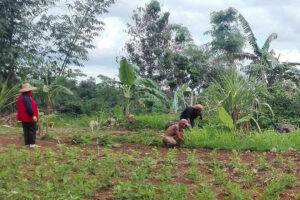AMENDMENTS are needed to the Comprehensive Agrarian Reform Law that will relax the rules on land consolidation and ownership to allow the more efficient farming of larger tracts of land, the Philippine Chamber of Commerce and Industry (PCCI) said.
“The weak agriculture system is principally driven by the low productivity of farmers and despite the implementation of the comprehensive land reform law and various support services, the Philippines continues to lag her neighbors in ASEAN in terms of development,” the chamber said in a statement.
“Land fragmentation as a result of the land reform program negatively impacts agricultural productivity and efficiency,” Foundation for Economic Freedom (FEF) Senior Policy Consultant George S. Katigbak added.
Currently, agrarian reform beneficiaries (ARBs) are prohibited from leasing or selling their property within 10 years of award. Also prevented from disposing of their land are those with unpaid obligations to Land Bank of the Philippines, or approximately 71% of all ARBs.
“The evidence on land pawning and selling show that land consolidation is actually taking place underground. In essence, we are not bringing in anything new, we are just formalizing what is happening on the ground which is an economic efficiency argument,” Mr. Katigbak said.
PCCI Agriculture Committee Chairman Paul Cuyegkeng said that land consolidation is the right direction to take and has a successful track record for driving efficiency.
“In my area, we have tried to consolidate a few hectares and it is working. We are grouping the farmers to form a cooperative and trying to put them together with the Cooperative Development Authority (CDA). The key thing is to make sure that we got the right representatives to manage the coop because you need people that can be trusted, honest in serving the coop members,” he said.
The FEF recommended amendments like the conversion of CLOAs (certificate of land ownership awards) to fee simple titles in order to increase the land values and efficiency in land transactions. — Luisa Maria Jacinta C. Jocson
